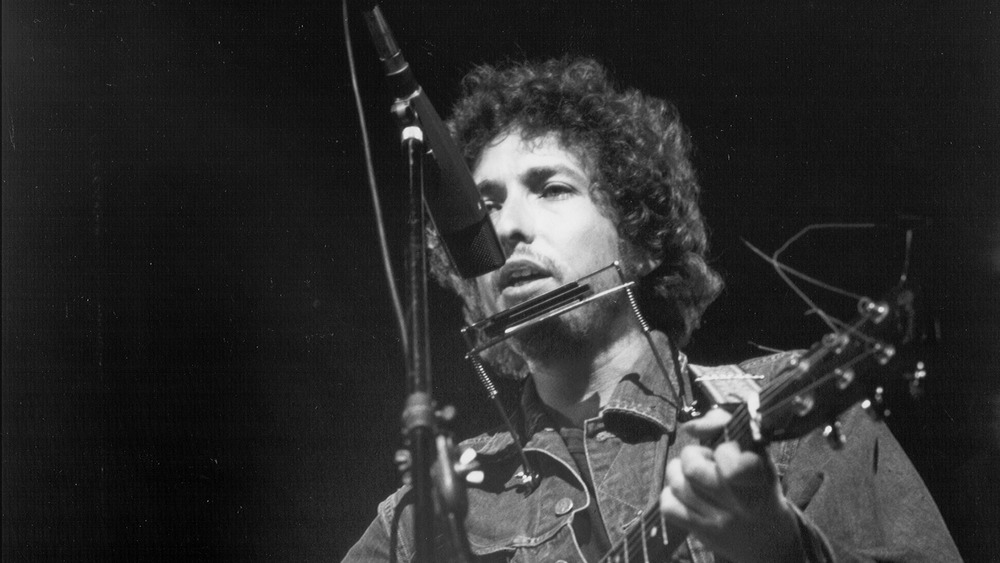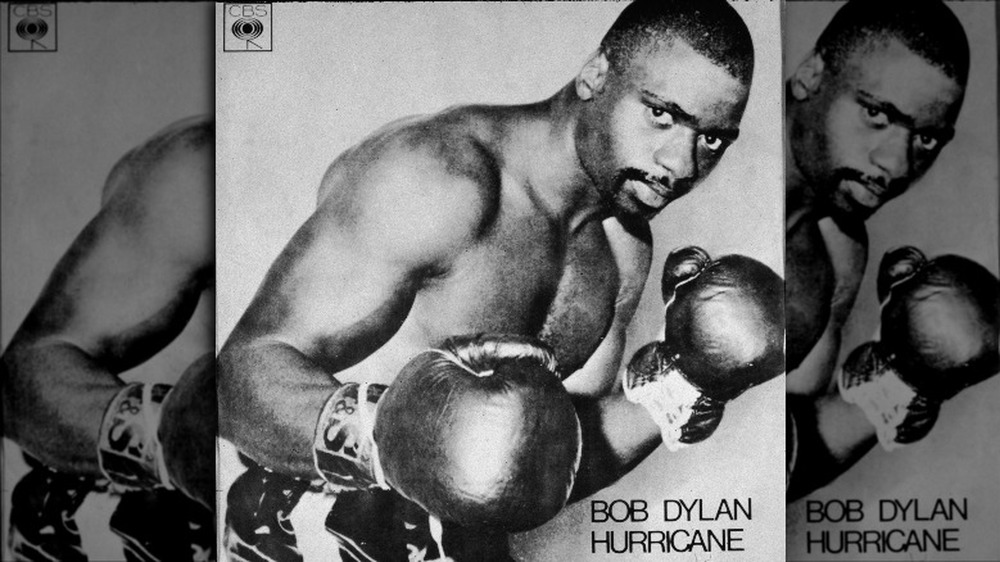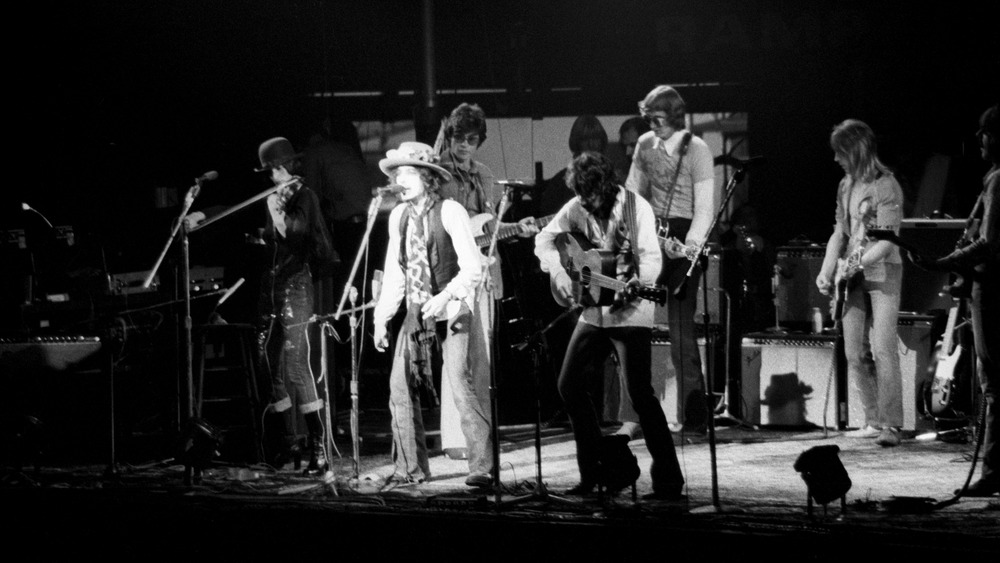The Horrible Incident That Inspired Bob Dylan's 'Hurricane'
"Hurricane," the opening track of Bob Dylan's 1976 album Desire, packs a punch that is belied by its jaunty instrumentation. The composition is now remembered as one of Dylan's most striking protest songs. It is the creation of an activist, the work of a writer engaging directly with a social injustice that had already rumbled on for 10 years by the time of the song's release.
"The story of the Hurricane," as it is referred to in the lyrics, is the story of Rubin Carter, a middleweight boxer who, at 30 years old and at the height of his career, was wrongly convicted of a triple homicide: a bartender and two patrons at the Lafayette Bar & Grill in Paterson, New Jersey, in June 1966, according to Leagle. Carter and 20-year-old John Artis were two black men convicted of the attack. Carter would go on to serve nearly 20 years behind bars before his conviction was overturned in 1985. It was only thanks to years of appeals — and, in part, to Dylan's raw retelling of the dubious legal process that surrounded the murders — that Carter was eventually released, his career and his youth taken from him as a result of racial biases in the police and justice system which the US is still working to eradicate today. As Dylan sings in "Hurricane":
To see him obviously framed / Couldn't help but make me feel ashamed to live in a land / Where justice is a game.
The wrongful conviction of Rubin Carter
Many of the key figures involved in Rubin Carter's wrongful conviction are referenced directly in Bob Dylan's "Hurricane," a song which pulls no punches in pointing out the inconsistencies of the police and unreliability of those who would go on to become witnesses for the prosecution in front of the court's all-white jury. As Soundfly notes: "People of Color were routinely harassed by law enforcement on the flimsiest of excuses ... and were often the first to be targeted as well as the last to be believed."
It was learned that two of the key witnesses in the trial, Arthur Dexter Bradley and Alfred Bello, were in the area to commit a criminal act of their own. Bello was keeping watch while Bradley was breaking into a nearby warehouse. As the Financial Times puts it, the pair were "were cajoled and threatened by police into identifying Carter and his co-defendant John Artis," as their own criminality was used to "put the screw" on them, as described in "Hurricane." Bello had originally explained to police that he had discovered the bodies of the victims after entering the bar to buy cigarettes, but later admitted that he had actually emptied the cash register.
Police solicited descriptions of a white getaway vehicle matching that of Carter and Artis, and later claimed to have found ammunition in the car, though this evidence has been disputed, as the bullets did not match those found at the crime scene.
Bob Dylan's support for Rubin Carter
Dylan learned of Rubin Carter's wrongful conviction by reading the boxer's autobiography, The Sixteenth Round, published in 1974. Dylan believed concretely that the case amounted to a miscarriage of justice, a combination of unreliable witnesses and botched police work that was given credence in court thanks to underlying racial bias. According to the Financial Times, Dylan then traveled to meet with Carter at Rahway State Prison, where he found, as he puts it in "Hurricane," "an innocent man, in a living hell."
"Hurricane" was written quickly, with Dylan working in collaboration with Jacques Levy to build a narrative from the tangled and confusing case. The lyrics, posted at Genius, make tell how the police turned to the attack's blinded victim for a positive identification of Carter and Artis as the killers ("though this man could hardly see, they told him that he could identify the guilty men," sings Dylan) and describe the trial itself as a racially-motivated "pig-circus."
In December 1975, Dylan performed a benefit concert, "The Night of the Hurricane," at Madison Square Garden, according to Rolling Stone, and was joined on stage by beat poet Allen Ginsberg and singer Joan Baez. Dr. Martin Luther King Jr.'s daughter, Coretta King, was in attendance. The event raised $100,000 for Carter's defense, and though the boxer was granted a retrial the following year, it took another decade for Carter to be released.
According to Encyclopedia.com, the case remains unsolved.


